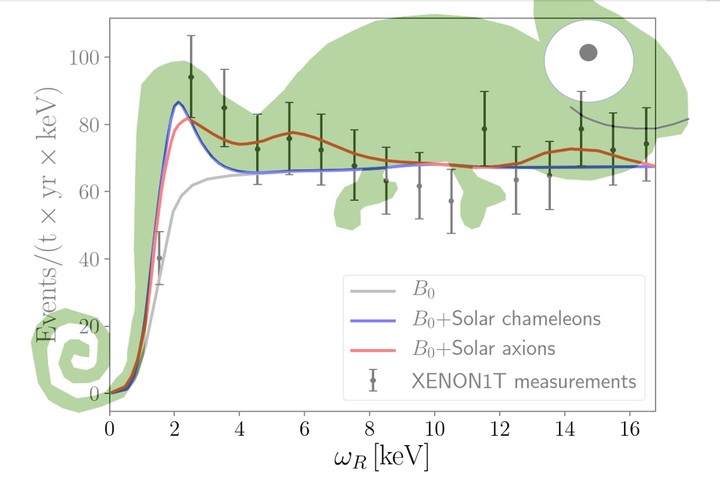Direct detection of dark energy: The XENON1T excess and future prospects

Abstract
We explore the prospects for direct detection of dark energy by current and upcoming terrestrial dark matter direct detection experiments. If dark energy is driven by a new light degree of freedom coupled to matter and photons then dark energy quanta are predicted to be produced in the Sun. These quanta free-stream toward Earth where they can interact with Standard Model particles in the detection chambers of direct detection experiments, presenting the possibility that these experiments could be used to test dark energy. Screening mechanisms, which suppress fifth forces associated with new light particles, and are a necessary feature of many dark energy models, prevent production processes from occurring in the core of the Sun, and similarly, in the cores of red giant, horizontal branch, and white dwarf stars. Instead, the coupling of dark energy to photons leads to production in the strong magnetic field of the solar tachocline via a mechanism analogous to the Primakoff process. This then allows for detectable signals on Earth while evading the strong constraints that would typically result from stellar probes of new light particles. As an example, we examine whether the electron recoil excess recently reported by the XENON1T collaboration can be explained by chameleon-screened dark energy, and find that such a model is preferred over the background-only hypothesis at the
Supplementary notes can be added here, including code and math.